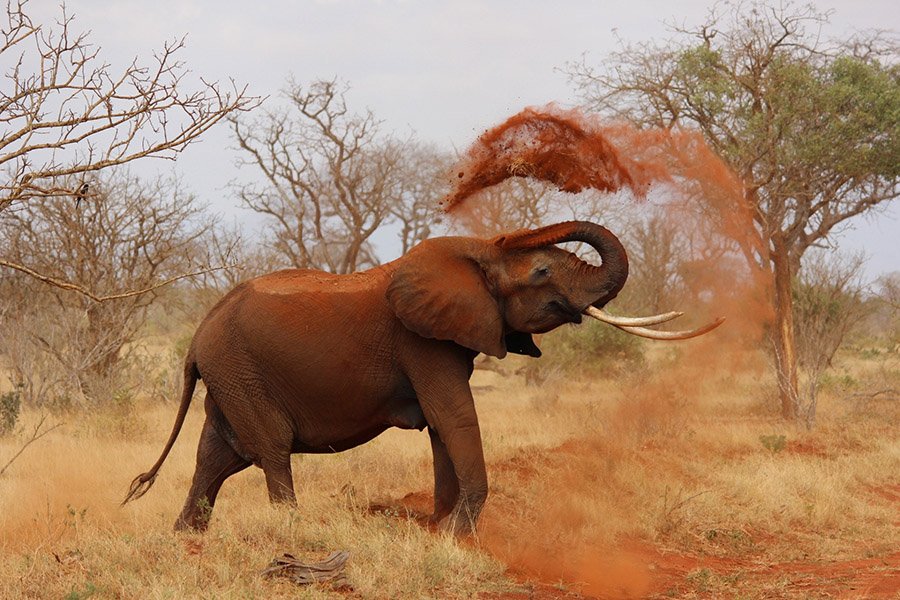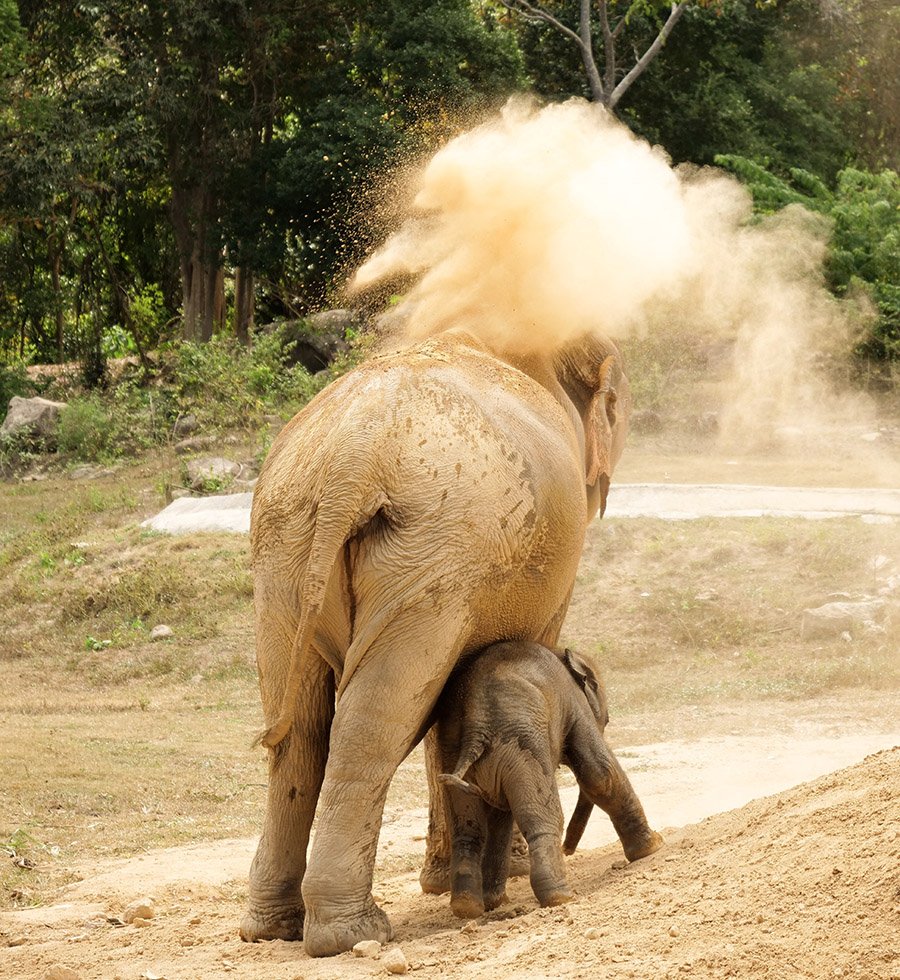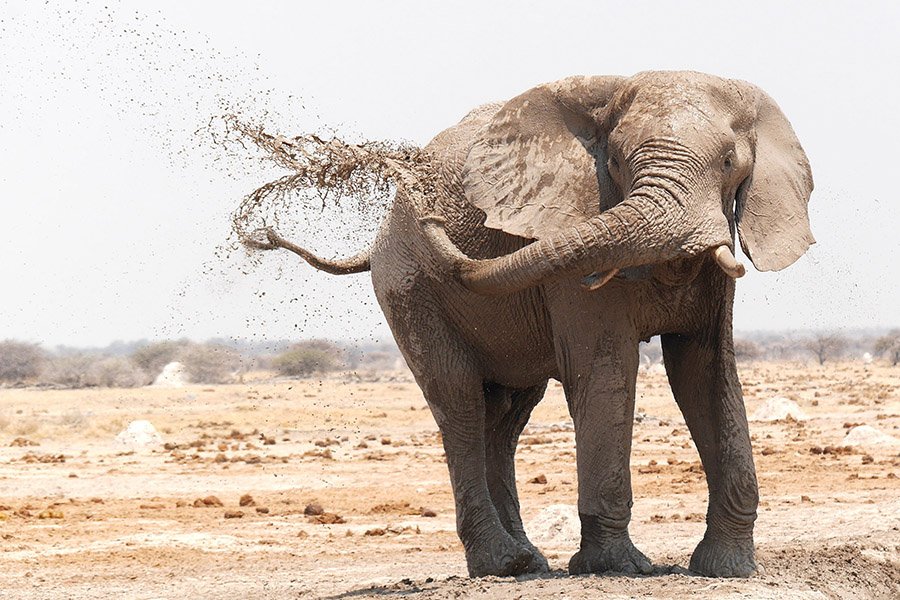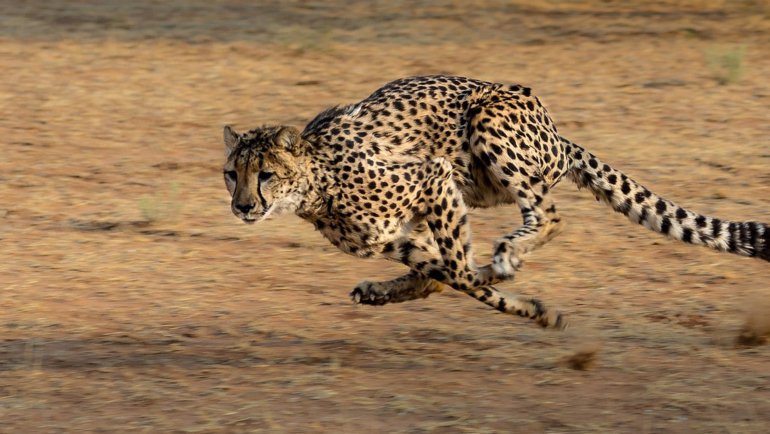Elephants are not only the largest and strongest land animals; but are also among the most intelligent wild animals. Due to their significant size, strength, and intelligence, these mammals are known to perform some of the most daring and intriguing acts.
For instance, they have been spotted uprooting or lifting huge trees using their trunks or mourning and burying their dead. Although most of their actions are easy to interpret, one of the most peculiar habits most people fail to understand is why elephants throw dirt on themselves.
Therefore, this article aims to provide comprehensive information that will enable you to understand; why the giant mammal engages in such behavior, how it benefits from it, and the circumstances that make them do so.
Why Do Elephants Throw Dirt On Themselves?
At first, it may seem like primitive behavior if you spot an elephant throwing dirt on its body. However, due to the high IQ level (intelligence) associated with these species, you can be certain that there are good reasons why these giants perform this action.
Below are five scientifically proven reasons why elephants throw dirt on themselves.
Sun Protection
Unlike most mammals, the elephant’s skin is not covered with hair or fur. However, they have a very thick outer skin layer which is said to be fifty times thicker compared to that of humans; since it is estimated to be one inch thick (2.5 cm).
Unfortunately, most of their occupied habitats experience high amounts of sun exposure, especially during the summer/dry season. Due to the lack of hair/fur and sweat glands, their skin is exposed to the sun’s harmful UV rays (Ultra Violet), making it crack.
Therefore, to protect their vulnerable skin from the scorching sun, they will scoop and throw significant amounts of soil using their trunks to their body.
The dirt will cover their skin, providing a protective layer that will minimize the UV rays’ penetration. In other words, dirt acts similar to how sunscreen gels protect human skin from the sun.

Bugs/Insect Bite Protection
Another vital benefit of throwing dirt on their bodies is protecting them from bugs, parasites, and insects such as mosquitoes and ticks that bite or attach themselves to their skins, causing itching discomfort when they suck blood from the giants.
Such instances are common during the elephants’ mating and breeding seasons due to the odor they emit, which tends to attract these annoying creatures.
In order to protect themselves, they throw dirt on their bodies which covers their skin, hence suffocating the bugs attached to their bodies. The soil/dirt also adds a protective layer, making it hard for insects to bite them.
To Clean Themselves
It may seem ironic that elephants clean themselves by throwing dust into their bodies. However, it’s scientifically proven that this action is efficient for the giant mammals to maintain their hygiene.
The gravel and sand particles in the soil/dirt act as an exfoliant (something that removes dead skin cells and other accumulated particles from the skin).
Therefore, the dirt they throw on their bodies enables them to shed off all unwanted residues (accumulated dirt, parasites, and dead skin) from their skins by making them dry and easy to peel off. The result is healthy and clean skin with open pores.
To Diffuse Tension and Avoid Fights
When elephants want to avoid a fight, distract or diffuse rising tensions among themselves, they will resort to this action to prevent fights/conflicts.
By throwing dirt on its body, an elephant is able to distract the other feuding member since some of the dust will end on its eyes. Therefore, instead of fighting, it will concentrate on how to clear its eyes from the dirt. By the time it accomplishes this, its anger will have cooled off, thus ending the conflict.

Bonding
Elephants are social creatures that live in groups of 8-15, led by the oldest female (matriarchal system), in a social unit called a ‘clan.’
These giants not only throw dirt on their bodies but also engage in communal dusting, which means members of the same clan will also throw dirt on their fellow relatives’ bodies.
Mothers with young calves are commonly seen performing this act on their offspring for various purposes, such as to bathe them, protect them from insects and scorching heat, or as a playful activity.
Regardless of the reason for doing so, the overall objective is to bond with each other and establish a strong connection between members of the same clan.
Do Elephants Roll Around in Mud?
Yes, elephants roll around in the mud, mainly for the same reasons listed above concerning throwing dirt on their body. But there are additional reasons that are unique in this specific act of rolling in the mud, which include:
To Heal Cracked Skins
If you’ve ever observed an elephant closely, there’s a high possibility that you have seen significant cracks on their skins. During the dry season, the wrinkles and cracks tend to worsen, and throwing dirt on their skin doesn’t help much in easing this condition.
Therefore, they will roll in the mud, present at their territory’s water source or after a rainy season, to moisturize their skin and minimize the cracks and wrinkles.
The water/moisture content in the mud helps their skin layer the same way lotion helps us moisturize and maintain healthy and soft skin.

To Mark Their Territory
Water sources in the wild are valuable, especially in habitats occupied by elephants. It’s because most regions where they are found usually experience long dry spells and droughts during the dry season.
As a result, most water sources, like rivers, end up drying during such periods. Therefore as a way to mark their territory, an elephant clan will occasionally engage in mud-rolling activity in the water sources available.
This act will scare away other animals or rival clans by making the waters dirty and establishing their dominance in that area.
Elephants are known to have an impeccable memory to the extent that a young calf will remember the specific place it used to inhabit, even if it stays for a long time without visiting the place.
If they vacate the region after the water source dries up, and after a while, it rains/the conditions resume as before, the giants will surely remember that the area was their territory, and they will reclaim it by all means necessary.
Final Thoughts
Those who previously thought throwing dirt on themselves or rolling in mud was an irrelevant activity that elephants engage in are now aware of the reasons.

